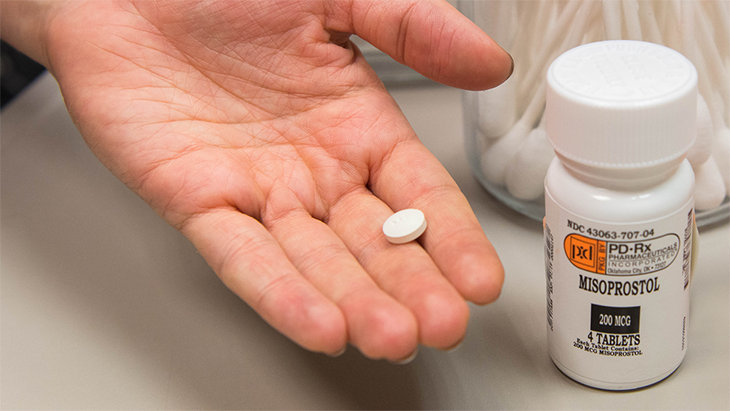
A recent study highlights the efficacy and convenience of virtual healthcare options, particularly in the context of terminating pregnancies. By leveraging virtual visits, such as video consultations, text-based communication, and mail delivery of medications, individuals can significantly reduce wait times and avoid the logistical challenges associated with traveling to a physical office.
The study, published in Nature Medicine, focused on telemedicine visits for medication abortions, revealed compelling findings. Researchers analyzed data from over 6,000 individuals who obtained abortion pills from online clinics across 20 states and Washington, DC, spanning from April 2021 to January 2022. Remarkably, nearly all of these abortions—98 percent—required no in-person follow-up care. Moreover, serious side effects were rare, with only 0.25 percent of patients experiencing such complications.
These results underscore the feasibility and safety of telemedicine in providing essential reproductive healthcare services. By eliminating the need for in-person exams for many individuals seeking medication abortions, virtual visits offer a streamlined and accessible pathway to care. This study not only reinforces the value of telemedicine in reproductive healthcare but also highlights its potential to expand access and improve outcomes for patients across diverse geographical locations.
“Medication abortion overall is extraordinarily effective and safe,” Jennifer Karlin, MD, PhD, an assistant professor in family and community medicine at the University of California in Davis, said. She wasn’t part of the new study made. In fact, the results witnessed by experts from virtual visits, texting, and mailing medication in this study appeared to be even more favorable than what typically happens with in-person care, Dr. Karlin added.
All participants in the research were provided with abortion pills following consultations conducted via video calls or text messaging with virtual clinics. However, individuals who exceeded the nine-week gestational limit for the services provided by the virtual clinics or who presented risk factors for ectopic pregnancy were redirected for in-person care and were not included in the study.
There’s a potential concern raised by Karlin regarding the eligibility criteria applied in the study, known as the “no test” criteria. This criterion screens out patients who did not undergo in-person examinations or ultrasounds. Karlin suggests that this criterion might render up to 18 percent of patients ineligible for telehealth abortion pill services.
“This is likely because the no-test abortion is screening out more people than necessary,” Karlin said. “Making the criteria less restrictive would help include that 18 percent, a large percentage of whom would have an effective and safe medication abortion.”
Serious Side Effects From Medication Abortion Are Not Very Common
Within the scope of the study, a mere 15 individuals encountered severe adverse events, comprising six cases of ectopic pregnancies and ten instances requiring hospitalization. Despite these occurrences, which represent a minority within the sample, researchers assert that the utilization of abortion pills through mail delivery remains a safe and efficacious method for terminating pregnancies for the vast majority.
In contemporary abortion practices, over half of all procedures involve medication, typically employing a combination of mifepristone and misoprostol. Legalized in the United States for more than twenty years, abortion pills offer a viable option for terminating pregnancies of up to approximately 10 weeks’ gestation. However, until recently, the FDA mandated in-person visits for prescription acquisition, effectively constraining accessibility.
Amidst the COVID-19 pandemic, the FDA temporarily waived this requirement, permitting telemedicine consultations for obtaining abortion pill prescriptions and subsequent mail delivery of the medications. This adjustment not only facilitated necessary medical care during the pandemic but also facilitated the collection of empirical data on the safety and efficacy of remote access to medication abortions, devoid of in-person consultations.
Supreme Court Case Puts In-Person Abortion at Higher Risk
Currently, the U.S. Supreme Court is deliberating on whether to mandate the FDA to revoke regulations that have facilitated increased accessibility to medication abortions.
“Each person should decide which is right for them, a medication or a procedural abortion,” said the lead study author, Ushma Upadhyay, PhD, MPH. She is a public health scientist with Advancing New Standards in Reproductive Health (ANSIRH) at the University of California San Francisco.
In any scenario, there will consistently exist individuals who favor seeking medical assistance, whether it involves receiving medication or undergoing a procedure. Conversely, there will also persist those who lean towards managing their abortion independently to the greatest extent feasible. This insight comes from Lux Alptraum, a prominent sex educator and advocate for self-managed abortion.
“Even if there were no legal obstacles to abortion care, there’d still be people who’d want to take pills at home alone and people who’d want to go into a clinic,” Alptraum said. She also was not part of the new study. “Legal restrictions are always going to hit procedural abortions harder than medication abortions because it is much easier to safely distribute abortion pills in regions where abortion is criminalized than to perform safe procedural abortions in those regions.”
Dr. Upadhyay predicts that medication abortion and virtual consultations for prescription services will see a surge in popularity, provided they remain within the bounds of legality. This forecast is fueled by numerous factors driving individuals to opt for these methods over traditional in-person appointments. Chief among these reasons are the enhanced privacy afforded by remote consultations, reduced waiting periods, and the convenience of managing the abortion process from the comfort of one’s home, thereby circumventing the need for travel.
“I hope this study will spread awareness that one can have an abortion with pills alone and that it can be done through telemedicine, without an in-person visit,” Upadhyay also said. “I hope this study helps to reduce some of that uncertainty and makes people feel more comfortable using these services.”



